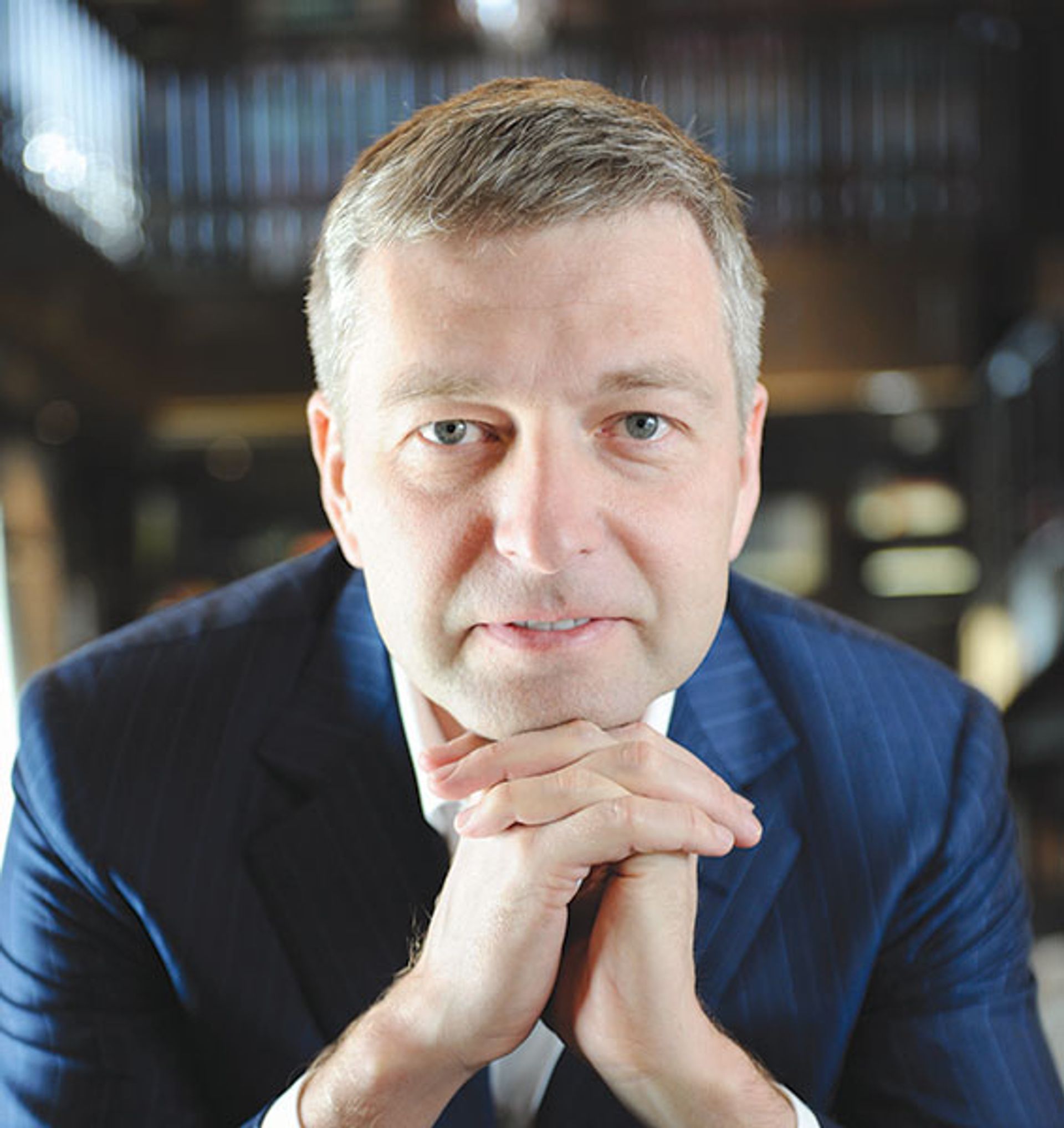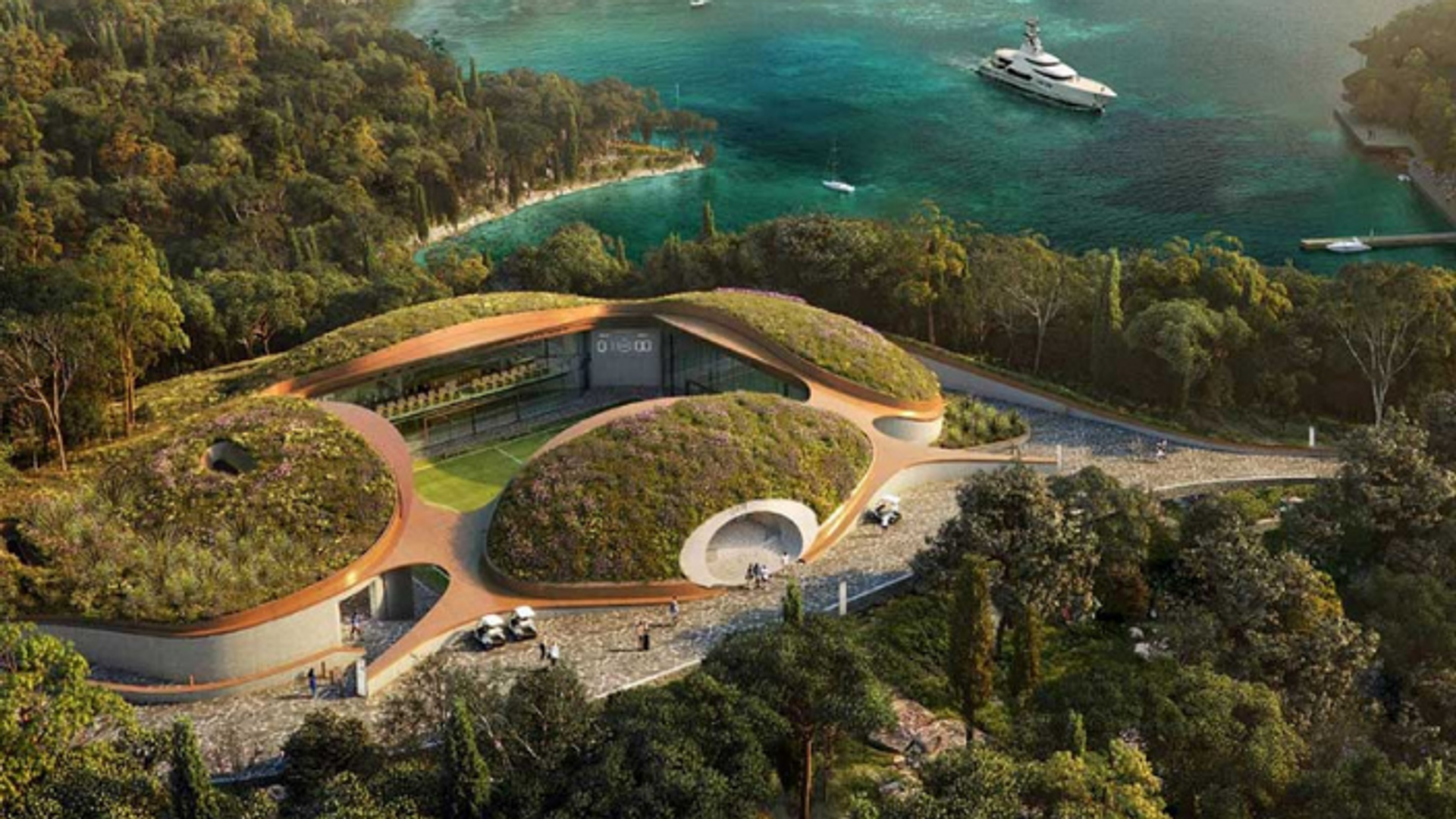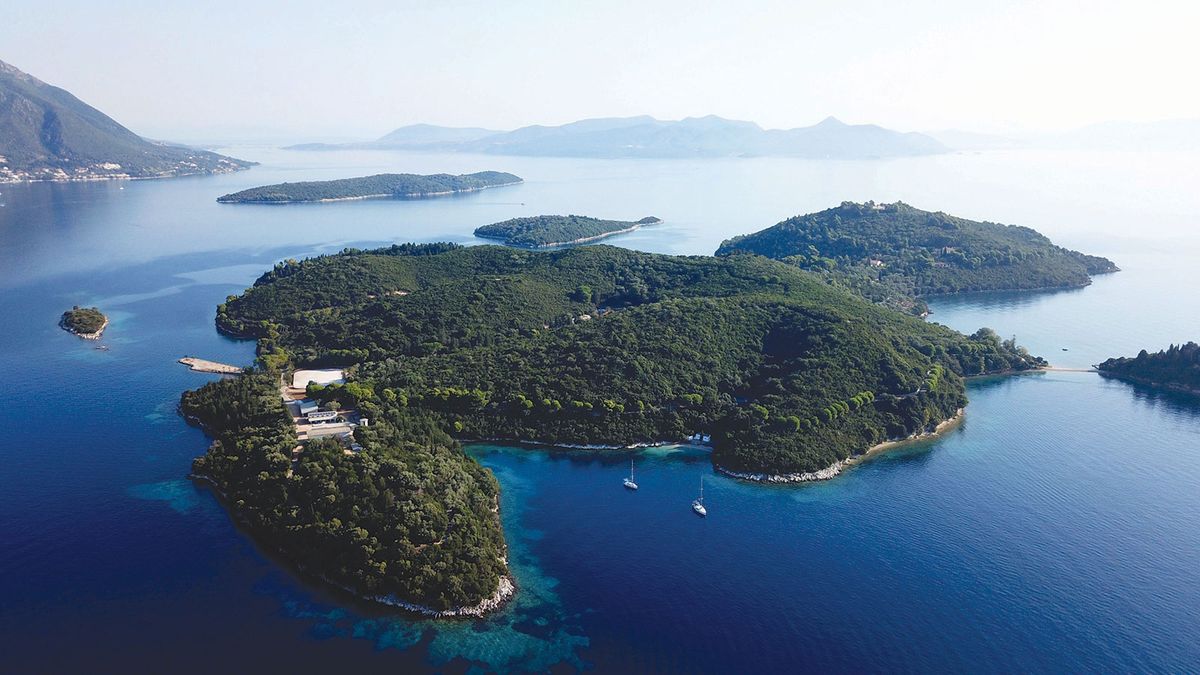Over the past few months, around 400 local construction workers have been tirelessly developing a resort on the private Greek island of Skorpios. Once inhabited by Jacqueline Kennedy Onassis, the island is now the property of the Russian oligarch and art collector Dmitry Rybolovlev, who has been embroiled in one of the art world’s most bitter legal cases for the past seven years.
The workers arrive on Skorpios by boat from nearby Lefkada, their phones confiscated so they cannot photograph anything. Around-the-clock surveillance from security cameras and snipers prevent intruders from crossing. A single cruise ship is permitted to dock at a small public beach, but only when the Rybolovlev family is not there.

Russian oligarch Dmitry Rybolovlev © Francknataf
Plans to transform the island into a luxury resort were first announced in 2019, when it was revealed that Rybolovlev’s company Mykinai SA would build a small beach hotel of 12 rooms and nine properties across the island. There are also plans for a helicopter landing pad, a marina for super-yachts, a football pitch (Rybolovlev owns AS Monaco), stables and a riding ring for 30 horses, tennis courts, restaurants and spa facilities. Once the resort is open in 2024, no more than 50 guests at a time will be expected to pay $1m each a week.
Yet the reality is more James Bond than Four Seasons. Accessible only by boat or helicopter, the remote island is almost medieval in its scale as a fortress. There is a drawbridge connecting the nearest public island of Lefkada to Preveza, home of the only nearby airport. There is also a long-standing culture of oligarchy among the surrounding cluster of islands. When Aristotle Onassis bought Skorpios in 1963 for the inflated equivalent of $12,500, he imported his own sand and trees. The Greek ship owner Panagiotis Tsakos owns the small uninhabited island of Atokos, and just 1,000 people call Meganisi home—including the Russian oligarch Roman Abramovich, who was also rumoured to have bid for Skorpios against Giorgio Armani and Bill Gates in 2013. But Rybolovlev purchased a 99-year lease on Skorpios for $150m that year, from Onassis’s last remaining grandchild, Athina Onassis. Rybolovlev bought neighbouring Sparti for an additional $30m.
The local tour guide Jane Flinders, of the M/S Christina cruise boat, was quick to note that Athina does not speak Greek and has only visited the island twice. Furthermore, with no known descendants, no Onassis family members will remain to reclaim the island from the Rybolovlev family when the lease ends.
Approval for the construction project—designed by the Norwegian company Snøhetta—took many years and government agencies, with an emphasis on job creation and environmental preservation. In 2014, Rybolovlev also donated an €80,000 state-of-the-art ambulance to the Lefkada hospital, and other generous gifts to the city and the port police to express support. There was controversy about banning boat passage, but a compromise was reached that the island pathway will only be closed when important political figures visit. The matter was fully resolved when investment in the area was emphasised.
The island is said to be aiming to be totally self-sufficient. It has an electricity generator, water treatment and first aid facilities, with a farm that produces fruit, vegetables, wine and olive oil. Another key selling point is the promise that, in Flinders’s words, “the hotels and the villas are also being built underground as much as possible and covered with trees, so as not to spoil the green beauty of Skorpios”.
Giant panic room or ‘art island’?
But between the land clearing and tree removal for construction, the water deepening and dredging that clears the seabed for yachts and an artificial lake, there is an insinuation that perhaps the environment is not the top priority. Could the priority be safety and security over aesthetics? If the buildings are underground, no one would know where they were. No aerial views would be seen by possible intruders. It is as if the entire design is a panic room.

A rendering of the development plan for Skorpios Island, which has been approved by the Central Archaeological Council Courtesy of the Greek Ministry of the Environment
A number of reports have claimed Skorpios is set to be an “art island”. Spokespeople for Rybolovlev denied this, saying it was a miscommunication during a press conference. The Greek newspaper Kathimerini ventured that the Onassis Pink Villa would be converted into a museum. However, it was reported in 2019 that some of Rybolovlev’s art was being stored below ground at the Neocleous Tower in Cyprus, while 12 of Rybolovlev’s team were stationed at Madura Holding, also in Cyprus. Whether the art would be moved from the underground facilities to the new ones on Skorpios remains to be seen.
Despite his Russian citizenship, Rybolovlev is not currently sanctioned, which means he has the ability to build in a relatively open way, but the rapid pace of the construction still underscores how precarious things are for anyone with ties to the region. His super-yachts are not permitted to enter Greek territory because of his Russian citizenship.
Tellingly, until construction is complete, Rybolovlev’s spokesman Sergei Chernitsyn reportedly told Lefkada Press that, when visiting the island, Rybolovlev prefers to sleep on his yacht.


